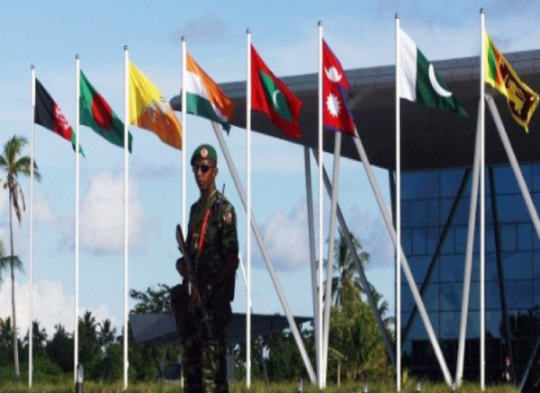Tele diplomacy in South Asia in the time of China-India tension
Yubaraj Ghimire | 08 September 2020
On August 15, Prime Minister K P Sharma Oli had a ten-minute telephonic conversation with his Indian counterpart Narendra Modi, ostensibly to wish him on India’s Independence Day. The Tele-diplomacy was projected as at haw, if not a breakthrough in Nepal-India relations that have been at their lowest ebb since May when Nepal refused to concede Delhi's request not to include 370 sq km land along the Nepal-Uttarakhand (Indian province) border in its new map.
The earlier conversation between Modi and Oli was in early April. But despite these conversations, the dispute over territory is nowhere near a solution, mainly because of India’s condition that Nepal must retreat from its’ cartographic aggression' first.
Exactly a fortnight later, on September 1, Oli held another tele-talk with another Prime Minister, Sheikh Hasina Wazed of Bangladesh and discussed many bilateral issues. He made a special request to have around 50,000 metric tonnes of chemical fertilizers as Nepalese farmers are indire need of it in the peak agricultural season. Private contractors, who get fertilizers from Indian companies, had failed to deliver. Oli’s request got a positive response from Sheikh Hasina. Given the Nepal-India tussle on many issues, mainly the outstanding border dispute, Oli found it more convenient to place the request with Bangladesh than with the immediate southern neighbor.
The South Asia Association of Regional Cooperation (SAARC) seems to be in a coma, deeply afflicted by India-Pakistan tension. The Bangladesh Bhutan-India-Nepal (BBIN) project under India's initiative has proved anon-starter. Countries around India including Bangladesh, Nepal and Sri Lanka, are having more interaction with each other and exploring ways to enhance dialogue and cooperation among themselves.
The China-India border skirmishes and the resultant tension; China’s enhanced presence in the SAARC region and its involvement in bilateral cooperation with all these countries in the region appear to have created a situation which encourages countries of the region to have bilateral and multilateral deals with each other, shedding explicit or hidden fears about India's retaliation.
India is visibly upset about its neighbors drifting away but seems unable to arrest it. As far as Nepal is concerned, India is wary about China's growing influence in domestic politics coupled with its larger presence in the areas of Foreign Direct Investment.
Bangladesh seems to be going the same way as Nepal. India's Foreign Secretary Harsh Vardhan Shringla made a sudden visit to Dhaka on August 18 in the wake of a Chinese offer of a one billion dollar soft loan for the Teesta river waters project at a time when water sharing remains a bone of contention between Bangladesh and India. Then there is Dhaka's discomfiture over the Citizenship Amendment Act that Delhi pushed through last year.
Prime Minister Imran Khan’s call to Sheikh Hasina on 22 July, was a significant event. Not only did he invite her to Islamabad on a state visit, but raised the Kashmir issue smartly trying to get Dhaka’s sympathy on the issue. And a few weeks before the call, Bangladesh accredited Imran Ahmad Siddiqui as the new Pakistani High Commissioner to Bangladesh, filling a post that had been vacant for nearly 20 months. Relations between the two countries is slowly warming up.
The return of the seemingly pro-China Mahinda Rajapaksha as Sri Lankan Prime Minister recently, continues to worry India. The Nepalese Prime Minister Oli was among the first from the neighborhood to congratulate Rajapaksa on his resounding election victory. The two leaders agreed that land-locked Nepal and sea-locked Sri Lanka had a tremendous future in terms of cooperation. Indian Foreign Secretary Shringla is likely to undertake a normal familiarization trip to the neighboring countries including Nepal. But the outcome of these trips is still uncertain.
Border talks are at the top of Nepal's bilateral agenda which India has been delaying for years. But avoiding it any more would only increase the hiatus between the two. The consensus report prepared by the Eminent Persons Group of India and Nepal two years ago is yet to be 'received' by Modi indicating that a powerful lobby in the Indian bureaucracy is opposed to reviewing Nepal-India relations and treaties, especially the1950 treaty of Peace and Friendship. The ruling Party in Nepal and many others consider these treaties to be 'unequal' and in favor of India. The general perception in Nepal is that India refuses to accept the principle of bilateralism in bilateral relations and wants to dictate terms.
Although India successfully lobbied for radical changes in Nepal's politics in
2006, the credit for that has now been appropriated by the Nepal Communists Party with an anti-India world view.
What is apparent is that India’s smaller neighbors will from now on independently handle their internal politics, and enhance relationships with each other without fearing the 'big brother'. This may be the new normal in South Asian diplomacy.
Yubaraj Ghimire, Editor, Deshsanchar, Nepal.
This article was originally published on South Asia Monitor.
Views in this article are author’s own and do not necessarily reflect CGS policy.
Comments
-
09 Sep 2020, 11:37 PM
Twenty five years Bangladesh -India Treaty of Friendship signed in 1972 was not renewed by Bangladesh as situation had changed on the ground. Although India wanted to renew the Treaty but Awami League Govt. under Sheikh Hasina thought twenty five years was a long period of time & the reason de tour for the signing the a Treaty no longer exit to continue with it. India accepted Bangladesh position. Indo-Nepal Treaty is now 70 years old . During my posting in Nepal early eighties I noticed visible unease among Nepalese about continuation of the Treaty. In seven decades the situation on the ground has changed so much that Nepalese are very vocal for termination of this Treaty. From Hindu Kingdom Nepal by a popular move has turned into a Republic.
